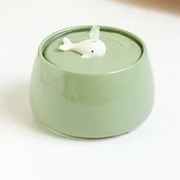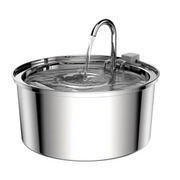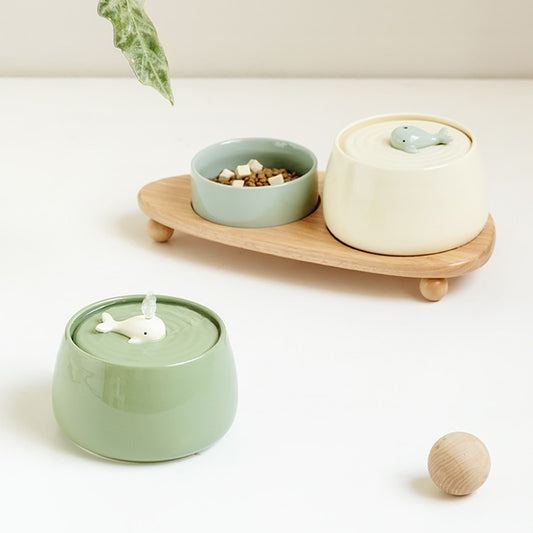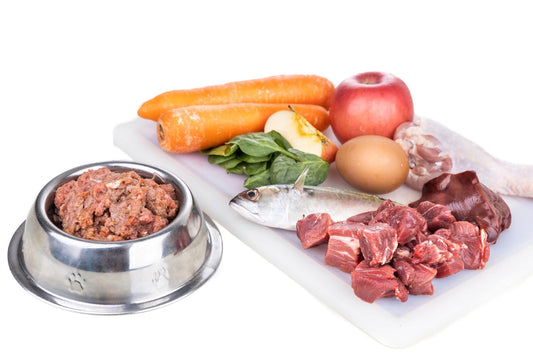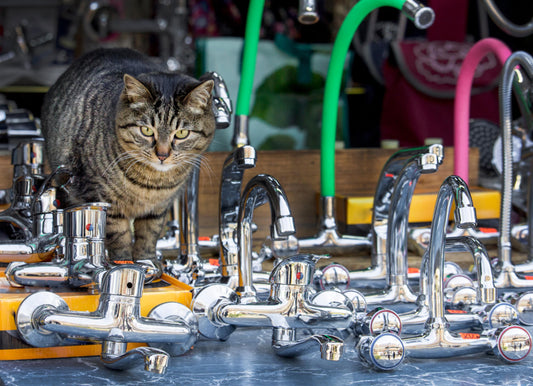Can Cats Eat Carrots?
Cat Water Fountains Australia
Share This Article
Imagine you're chopping vegetables in the kitchen, and you catch your cat eyeing a carrot slice with curiosity. You might wonder, "Can cats eat carrots?" This question is common among cat owners, and the answer isn't as simple as you might think. Let's delve into the world of feline nutrition and discover whether carrots are a safe and healthy treat for your furry friend.
Understanding the Feline Diet: Carnivores at Heart
When you watch your cat play with a mouse or bird, it's clear that cats are natural hunters. This behaviour stems from their biological classification as obligate carnivores. This means that cats must eat meat to obtain essential nutrients that their bodies cannot produce independently. Animal proteins, like those found in meat, closely match the dietary needs of a cat, providing crucial nutrients such as taurine, which supports heart health, vision, and overall well-being.
Why Do Cats Eat Plants?
Despite their carnivorous nature, some cats show interest in plants. This behaviour can be attributed to several factors:
- Curiosity - Cats are naturally curious creatures and may nibble on plants to explore their environment.
- Boredom - A lack of stimulation can lead cats to chew on plants or other non-food items.
- Fiber Intake - Some cats may seek out plant material to supplement their fiber intake, aiding in digestion.
However, not all plants are safe for cats. Certain plants, like lilies and tulips, can be toxic. Therefore, it's essential to ensure that any plants your cat has access to are safe and non-toxic.
Can Cats Eat Carrots?
The short answer is yes, cats can eat carrots. Carrots are not toxic to cats and can offer some health benefits when given in moderation. However, it's crucial to understand how to introduce carrots into your cat's diet safely.
Carrots: A Snack, Not a Staple
While carrots can be a healthy treat, they should not replace the meat-based meals that cats need for proper nutrition. Carrots can provide a different texture and flavour, making them an occasional supplement to your cat's diet rather than a mainstay.
Raw vs. Cooked Carrots
When feeding carrots to your cat, it's best to serve them cooked and finely chopped. Raw carrots can be hard and pose a choking hazard. Cooking the carrots softens them, making them easier for your cat to chew and digest. Always introduce new foods gradually and monitor your cat for any changes in behaviour or digestive issues.
Nutritional Benefits of Carrots for Cats
Carrots offer several potential benefits for cats:
- Rich in Vitamins - Carrots are high in vitamin A, which supports vision, immune function, and overall health.
- High in Fiber - The fiber content in carrots can help regulate your cat's digestive system.
- Low in Calories - Carrots are a low-calorie snack, making them a good option for cats needing to lose weight.
- Hydrating - Carrots are mostly water, helping to keep your cat hydrated.
- Dental Health - Chewing on carrots can help remove plaque from your cat's teeth, promoting healthier gums.
Potential Risks and Precautions
While carrots can be beneficial, there are some risks to be aware of:
- Choking Hazard - Ensure carrots are cut into small, manageable pieces to prevent choking.
- Digestive Issues - Too much fiber can lead to digestive problems such as diarrhea or constipation.
- Allergic Reactions - Although rare, some cats may have an allergic reaction to carrots. Monitor for symptoms like itching, swelling, or difficulty breathing and consult a vet if these occur.
How to Safely Introduce Carrots into Your Cat's Diet
- Start Small: Begin with a small piece of cooked carrot to see how your cat reacts.
- Monitor Their Response: Observe your cat for any signs of digestive discomfort or allergic reactions.
- Make it Appealing: Experiment with different preparation methods, such as mixing finely chopped carrots into your cat's regular food.
- Balance is Key: Carrots should be a supplement, not a replacement for your cat's meat-based diet.
Veterinary Insights on Feeding Carrots to Cats
According to Dr. Eleanor Fielding, a veterinarian with over two decades of experience, "Cats are obligate carnivores, but they can benefit from certain fruits and vegetables in moderation, including carrots." While carrots can be a healthy treat, they should not form a significant part of a cat's diet. Dr. Fielding recommends cooking the carrots and chopping them into small pieces to make them easier to digest and to avoid choking hazards.
Conclusion
Carrots can be a safe and nutritious treat for cats when given in moderation. They offer several health benefits, including vitamins, fiber, and hydration. However, it's essential to introduce carrots gradually and monitor your cat's reaction. Always prioritise a meat-based diet for your obligate carnivore and consult your vet with any concerns. Happy feeding!
Note: The information provided in this article is for educational purposes only and should not be taken as veterinary advice. Always consult with your veterinarian before making any changes to your cat's diet or healthcare routine.

